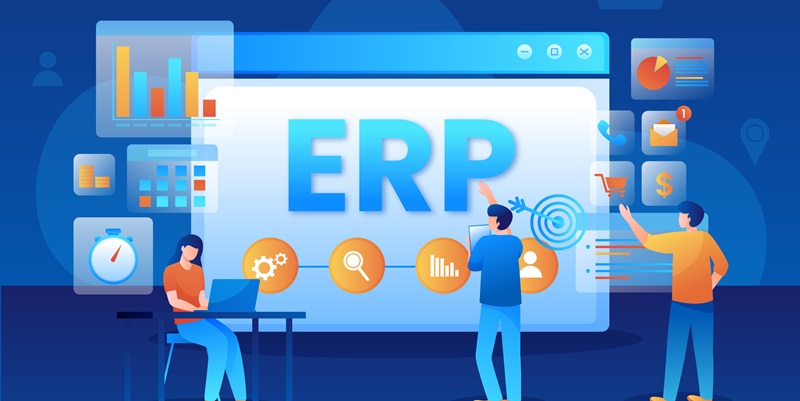In today’s digital landscape, businesses rely heavily on Enterprise Resource Planning (ERP) systems to streamline operations, manage resources, and enhance overall efficiency. However, for optimal functionality, it is crucial to effectively integrate an ERP system with other systems. This article will delve into the key considerations, tools, and strategies for a successful ERP integration process to improve business processes.
Considerations for Integration
To ensure a seamless integration, businesses must carefully evaluate their unique requirements and processes. Factors such as business processes, compatibility, and system dependencies should be thoroughly analyzed. A comprehensive understanding of the organization’s needs will drive the integration process, maximizing benefits while minimizing disruptions.
Integration Tools: APIs & Middleware
To connect different systems, integration tools such as Application Programming Interfaces (APIs) and middleware play a vital role. APIs allow different software applications to communicate with each other, facilitating data exchange and synchronization. Middleware acts as a bridge, connecting multiple systems, and simplifies the integration process. Choosing the right integration tool is essential to ensure smooth and efficient connectivity between the ERP system and other applications.
Evaluating Transaction Complexities and Data Volume
A critical aspect of ERP integration is evaluating transaction complexities and data volume. Businesses need to understand the nature of their transactions, frequency, and how they impact data transfers. Analyzing data volume ensures that the integration process remains stable and avoids any bottlenecks that may hinder operational efficiency. This evaluation will enable businesses to optimize data transfer processes and minimize disruptions.
Customization of ERP Solution
Every organization has unique requirements, and not all ERP systems offer out-of-the-box solutions to fulfill all of these needs. Customization of the ERP solution may be necessary to align with specific business requirements without compromising system stability. By tailoring the system, businesses can enhance functionality, increase productivity, and seamlessly align their ERP system with existing processes.
Data Security and Compliance
As data privacy becomes increasingly important, ensuring data security and compliance during the integration process is paramount. Businesses must implement robust data encryption techniques, access controls, and secure data transfer protocols to safeguard sensitive information. Compliance with industry regulations such as the General Data Protection Regulation (GDPR) or the Health Insurance Portability and Accountability Act (HIPAA) must be closely adhered to, preventing any legal or reputational risks.
Industry Regulations
Various industries are subject to specific regulations that govern data privacy, security, and compliance. Businesses must ensure that their ERP integration strategies adhere to these regulations. Compliance with industry standards and regulations not only protects the organization, but also fosters trust among clients and stakeholders. Regular audits and reviews in line with these regulations should be incorporated into the integration process.
User Training
Integrating an ERP system often requires changes in processes and workflows, which may impact employees’ day-to-day activities. To ensure seamless adoption and minimize resistance, comprehensive and targeted user training programs should be implemented. Employees must be educated on the new system’s features, functionalities, and potential benefits, empowering them to leverage the integrated ERP system effectively.
Change Management Strategies
Resistance to change is natural during any integration process. To alleviate this resistance, effective change management strategies should be implemented. Clear communication, involvement of key stakeholders, and addressing employee concerns are crucial to fostering a positive environment during the integration process. Encouraging feedback and addressing challenges promptly help in managing the transition effectively.
Scalability Considerations
Future growth and expanding business requirements should be considered during ERP integration. Businesses must evaluate scalability requirements to ensure that the integrated ERP system can accommodate increased data volumes, additional users, and evolving business needs. By incorporating scalability considerations at the early stages of integration, organizations can avoid disruptions and costly upgrades later on.
Successfully integrating an ERP system with other systems requires careful planning, evaluation, and implementation. By considering factors such as business processes, compatibility, and transaction complexities, businesses can select the right integration tools and customize the ERP solution to align with specific requirements. Prioritizing data security, compliance, user training, and change management strategies will facilitate a smooth transition throughout the integration process. Additionally, keeping scalability considerations at the forefront guarantees the ability to adapt to future growth and evolving business needs. By following these guidelines, businesses can enhance their overall efficiency and elevate their business processes with a seamlessly integrated ERP system.

